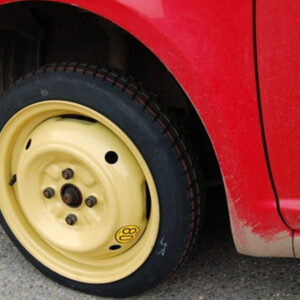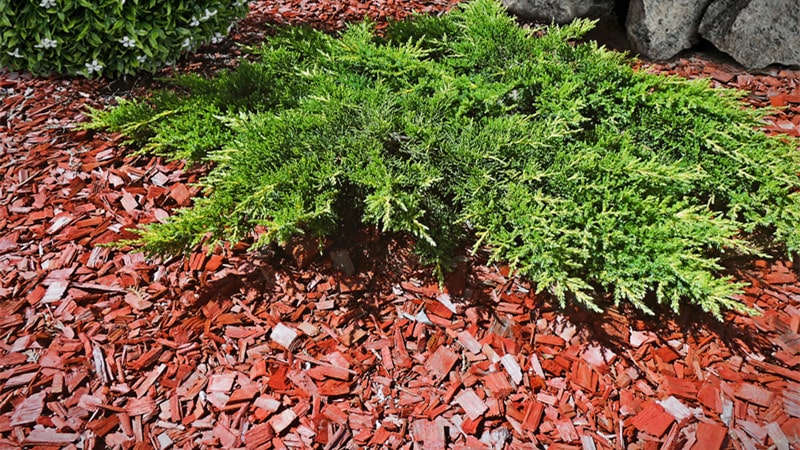
Mulching your garden is one of the easiest and most effective ways to retain moisture in the soil and to keep your plants fully hydrated even when you don’t water them. Although there are different types of mulches that you can use in your garden, cedar mulch is the most common.
But why is cedar mulch the most popular? This article will answer this and other common questions about cedar mulch.
What Is Cedar Mulch?
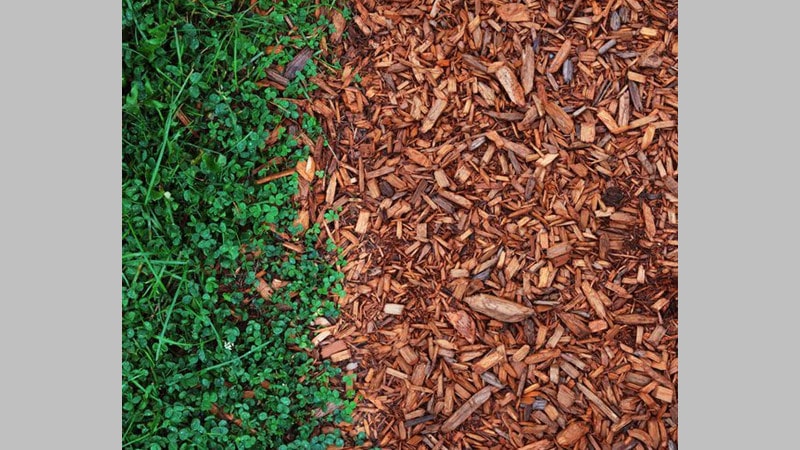
Image source: Pinterest
Cedar mulch comes from shredded or chipped barks of cedar trees. Cedar is an evergreen tree that grows plentifully in the U.S. Department of Agriculture plant hardiness zones 7 through 9. Shredded cedar mulch forms an airy, light layer over the soil, keeping it soaked all the time.
You can either make your own cedar mulch or buy it from local cedar dealers. To make your cedar mulch, you will need a cured stump or log of cedar, a chainsaw, a hatchet, and a hammer. Use the chainsaw to cut the cedar stump or log into 2-inch sections, stacking the pieces on top of one another.
Chop the pieces of cedarwood into small shavings until you have the tinniest shreds. If you still have large pieces of cedar that cannot be shredded with a chainsaw, use a hammer to break them into tiny pieces. You can also put the pieces together and bust them further into smaller shreds using the hatchet.
Put the wood chips in a large container and pour water into the container to the same level as the wood chips. Let the mixture sit for about three days until the wood chips are completely soaked.
Drain the water and leave the wood chips in the sun to dry. Once the wood chips are completely dry, you can use them in your garden as mulch.
Where to Buy Cedar Mulch
Many local and online stores sell cedar mulch and wood chippings. You can also get it from your local furniture and timber manufacturers who use cedar. Also, if there is a factory in your area that uses cedar to manufacture different timber products, ask them if they sell cedar chippings.
What Does Cedar Mulch Do?
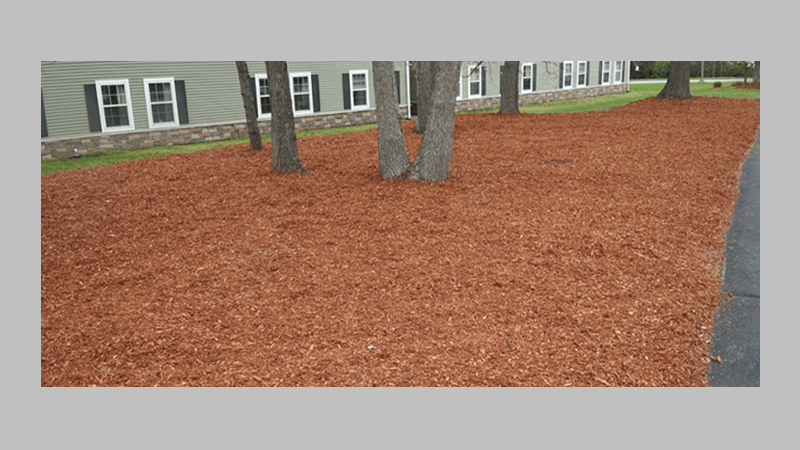
Image source: Pinterest
There are several reasons why most gardeners use cedar mulch, both functional and aesthetic. Here are some of the reasons why many people in the United States use cedar mulch in their gardens.
• Water retention – cedar mulch prevents the loss of water from the soil surface, preserving the soil moisture.
• Weed inhibition – it prevents weed growth by keeping light from reaching the soil surface.
• Soil insulation – cedar mulch regulates soil temperature, keeping it warm on cold nights and cool on hot days.
• Repelling insects – cedar mulch effectively repels insects through its natural chemicals and oils.
How to Use Cedar Mulch in Your Garden
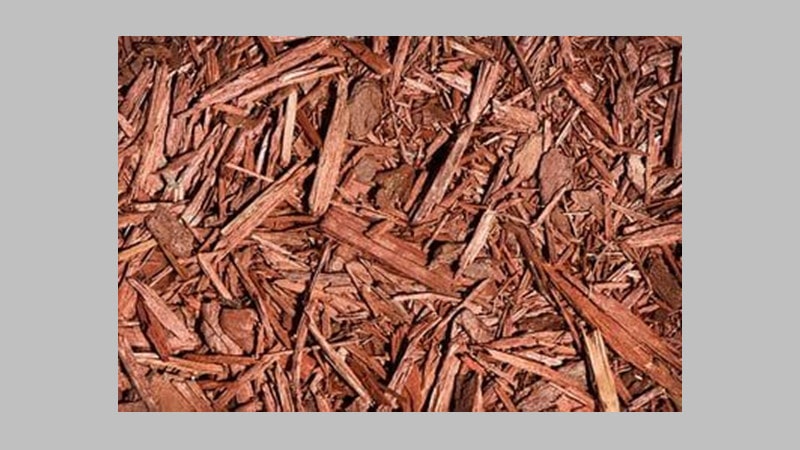
Image source: Pinterest
The process of using cedar mulch in your garden is quite straightforward. You just need to follow these steps:
• Find good quality cedar mulch.
• Make sure the plants you want to mulch are at least 5 inches tall.
• Prune any bottom leaves that are close to the ground so that they are not buried or overcooked by the mulch.
• Place your cedar mulch to a depth of between 2 and 3 inches deep, making sure all the soil is fully covered. However, you need to leave a 2-inch gap around the stem.
Important Facts About Cedar Mulch
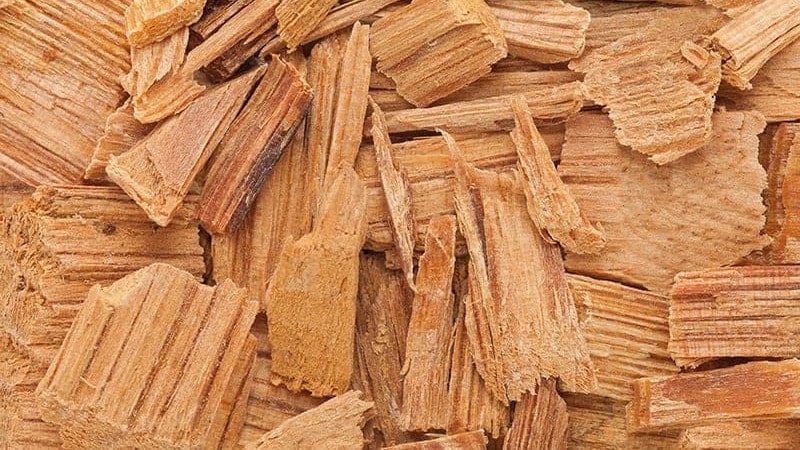
Image source: Pinterest
If you are looking for the best type of mulch to use in your kitchen garden, then cedar mulch is a viable option.
Apart from the obvious functional benefits of using cedar mulch, like preventing weeds from growing in your garden and retaining moisture in the soil, cedar mulch also adds an aesthetic value to your garden. Here are some other important facts you need to know about cedar mulch before you use it in your garden.
1. Natural Insect Repellent
Since cedar mulch is made from cedar trees, it is loaded with various natural oils and other unique compounds that will turn different pests away. This makes cedar mulch a great addition to your yard. It is known to repel many insects including ants, moths, maggots, mosquitoes, and carpet beetles.
Since the resin from cedar heartwood is highly toxic to termites, it prevents termites from spreading disease in your garden and home. By using cedar mulch in your kitchen garden or flower pots, you will eliminate times around your home. Cedar mulch also deters cockroaches and the odorous house ants.
2. Breaks Down Slowly
Unlike other types of mulches, cedar mulch doesn’t break down easily and therefore it will take a long time to decompose. This means that you won’t have to keep replenishing it now and then. Cedar mulch can last up to two years before it decomposes, even when it is exposed to the elements.
This also means that it won’t be blown away by the wind. So, if you are living in a windy area, you should consider cedar mulch for your garden. After two years, you will notice a change in its color and a few patches in your garden. This is a perfect time to apply new cedar mulch.
3. Doesn’t Shift
Since cedar mulch is shredded into small chips that usually interlock to form a thick mat, it doesn’t shift over time. Other types of mulches such as grass and dry leaves don’t stay in the same position for a long time, especially during heavy rains and winds. Unfortunately, this will leave your soil and plants exposed.
With cedar mulch, you are certain that your garden is properly covered even after a strong wind or heavy downpour. Therefore, you won’t need to reapply your cedar mulch every so often. This mulch remains tidy throughout the wild season, saving you money and time.
4. Doesn’t Intoxicate Plants
One of the main concerns that people have when mulching their gardens with cedar is whether it will kill their plants. This fear is based on the fact that cedar contains natural oils and other chemicals that are harmful to insects, fungi, and bacteria. The truth is that there is no documented evidence to show that cedar mulch is toxic to plants.
However, numerous studies have revealed that certain varieties of cedar can be used to manufacture pesticides and fungicides. Furthermore, it has been established that cedar contains a water-soluble tropolone, commonly referred to as thujaplicin, which can be used to prevent tumor growth.
Pros and Cons of Cedar Mulch
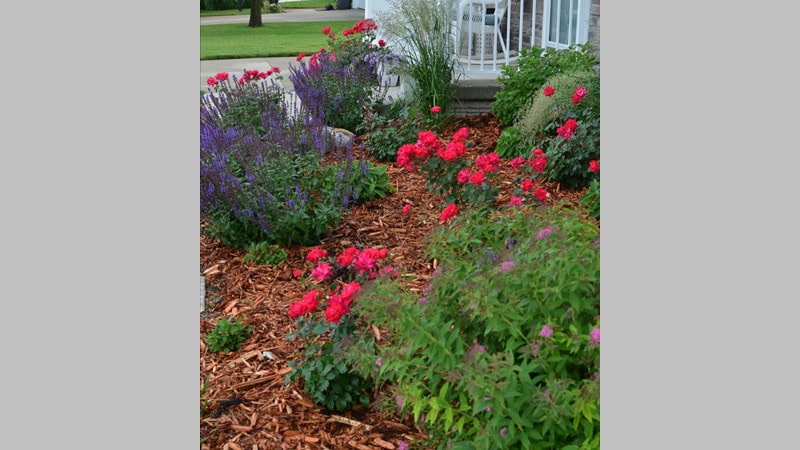
Image source: Pinterest
Pros
Water Retention
Cedar mulch has proved to be highly effective in retaining moisture in the soil. It reduces moisture evaporation by providing a thick cover between the soil and air. Cedar mulch also helps to retain moisture by regulating temperatures in the soil, thus preventing evaporation.
And because cedar shreds cannot be moved by strong winds and rains, they will stay in one place, ensuring no part of your garden is exposed to direct sunlight which causes evaporation. This also means that your plants can survive for a long time without rain or irrigation.
Weed Inhibition
Weeds are like parasites because they compete with plants for water and nutrients. Therefore, if you want your plants to remain healthy and strong, you have to get rid of all the weeds in your garden. Fortunately, cedar mulch helps to inhibit weed growth by preventing sunlight from reaching the soil.
Without sunlight, the weeds won’t survive. Even when the stubborn weeds germinate and shoot through the mulch, it will be very easy for you to spot them against the backdrop of cedar mulch. So, you can easily uproot them before they become a full-blown weed.
Soil Insulation
Cedar mulch serves as insulation for your soil, especially in summer and winter. With this mulch, your soil will remain cool in the hot season and warm in winter. Cedar mulch also helps to regulate soil temperatures, providing your plants with a stable environment throughout the year.
Insect Repellant
Cedarwood is a natural insect repellant. It doesn’t attract moths and repels termites. That’s why it is the best wood for bedroom furniture. So, with cedar mulch around the base of your plants, you do not have to worry about insects and pests that feed on the stems of plants.
Long-Lasting Mulch
Since cedar mulch doesn’t decompose easily, you won’t have to, regularly, replace your mulch or dress your soil. Therefore, if you want to invest in a long-lasting garden solution, cedar mulch is your safest bet.
Cons
Loses Color Over Time
Over time, your cedar mulch will lose its color and turn into a very unpleasant grey, especially when used in the flower garden outside your house or along the driveway. This means that you have to, constantly, keep replenishing your cedar mulch to retain the bright earth tone.
Loses Insect Repellent Qualities
Although your cedar mulch will do a great job of eliminating insects and pests, it does so only for a short time. The natural oils and chemicals in cedarwood will dissolve into the soil, allowing insects and pests to attack your plants. To avoid this, you have to keep replenishing your cedar mulch.
Potential Fire Hazard
When you place cedar mulch around your house and other outdoor structures, you create a potential fire hazard. It is very easy for your dry cedar mulch to catch and spread fire in your home, especially if you reside in an arid or hot area. Therefore, you have to keep anything that can ignite a fire away from your mulch.
Doesn’t Blend into the Soil
Since cedar mulch consists of wood chips, it doesn’t blend smoothly with the soil even after it decomposes. Its composition is quite different from other types of tree-based mulches. So, it won’t mixture thoroughly with the soil or add any nutrient value to the soil when it decomposes.
When Not to Use Cedar Mulch
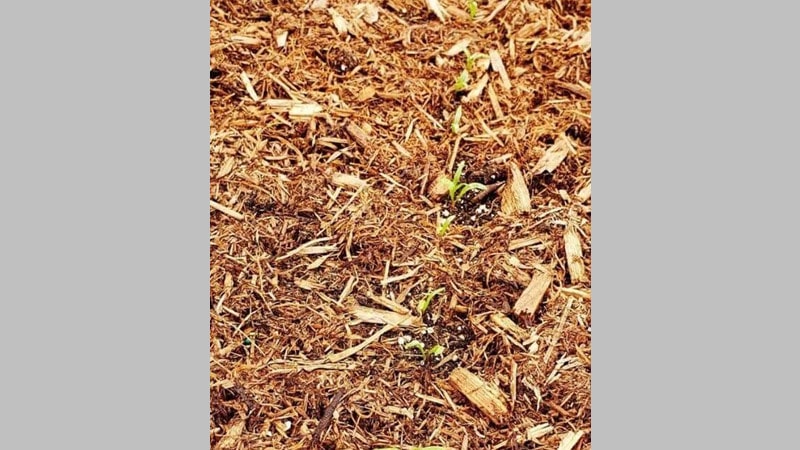
Image source: Pinterest
Although cedar mulch is beneficial to the plants, soil, and overall garden, there are times when it is not the best option. Here are some of the instances when cedar mulch may not be the best choice.
• Sensitive residents – if some people or pets in your home are sensitive to cedar fragrances, you should avoid using cedar mulch because it will exacerbate their symptoms.
• Greenwood chips – when you use green cedar chips as mulch, they will draw nitrogen from the soil, leaving your plants starving. Therefore, avoid using cedar chips in a garden with vegetables because they require high levels of nitrogen.
• Acidic soil – fresh cedar chips can add acid to the soil, increasing its acidity. This can cause serious problems, especially if your soil already has a low pH.
• Tender plants – cedar mulch can cause toxicity when used on very tender plants with shallow root systems.
• Beneficial bugs – don’t use cedar mulch if you want to retain beneficial insects in your garden because its natural oils and chemicals will chase them away.
• Tight budget – cedar mulch is quite expensive. So, if you do not have enough money to purchase it, use other organic mulches.
In Summary
Mulching is an important part of gardening because it prevents weed growth and helps preserve moisture. With this information, you should be able to take full advantage of cedar mulch to make your gardening endeavors successful.








